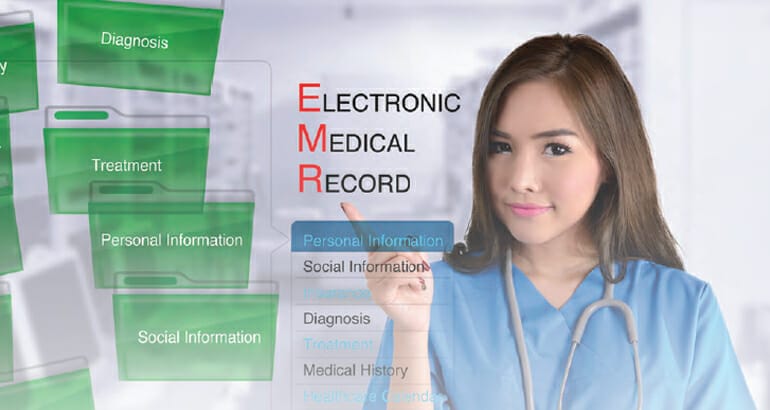An electronic health record (EHR) is the modern term for medical health record. It is a digital
version of a patient’s paper chart. EHRs are real-time, patient-centered records that make
information available instantly and securely to authorized users. While an EHR does contain the medical and treatment histories
of patients, an EHR system is built to go beyond standard clinical data collected in a provider’s office and can be inclusive of a broader view of a patient’s care. EHRs can:
• Contain a patient’s medical history, diagnoses, medications, treatment plans, immunization dates, allergies, radiology images, and laboratory and test results.
• Allow access to evidence-based tools that providers can use to make decisions about a patient’s care.
• Automate and streamline provider workflow.
One of the key features of an EHR is that health information can be created and managed by authorized providers in a digital format capable of being shared with other providers across more than one health
care organization. EHRs are built to share information with other health care providers and organizations. Many targets of this information include laboratories, specialists, medical imaging facilities, pharmacies, emergency facilities, school and workplace clinics. Their critical importance is they contain information from all clinicians involved in a patient’s care.
With the introduction of EHRs healthcare systems improve patient care coordination
The world continues to be radically transformed by digital technology – smart phones, tablets, and web-enabled devices are the norm. Medicine is an information rich enterprise. A digital healthcare
infrastructure, created by electronic health records (EHRs), leverages digital progress and transforms the way care is delivered and compensated. The Health Information Technology for Economic and Clinical Health (HITECH) Act represents the nation’s first substantial commitment of federal resources to support the widespread adoption of EHRs.
Better Decisions. Coordinated Care. Up-to-date patient records improve providers ability to make well-informed treatment decisions quickly and safely.
Benefits of EHRs:
• Improved patient care.
• Improved care coordination.
• Practice efficiency and cost savings.
• Increase patient participation.
• Improved diagnostics and patient
outcomes.
EHRs are an important step in the continued progress of healthcare that can strengthen the relationship between patients and clinicians.
Source: Medical Economics,
HealthIT.gov





